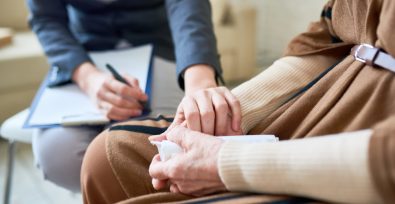The National Referral Mechanism (NRM) is the UK’s official system for identifying individuals who may be victims of modern slavery and connecting them with appropriate support services. In the past year alone, first responders referred over 20,000 people to the Home Office, overwhelming the system and leaving many vulnerable. A recent article by The Big Issue highlights the emotional burden of two first responders who remain dedicated amid setbacks.
“He thought these people were his friends.”
Josefiina Kalliokoski volunteers with the Salvation Army as a first responder for victims of modern slavery and human trafficking. One case that remains with her involved a young boy coerced into drug trafficking at age 8. She recalled,
“He thought these people were his friends. They cared for him. Then they started pinning things on him. He was completely exploited and facing quite serious charges. He was devastated and struggling to make sense of the fact that the people he thought he could trust turned out to be violent, scary and abusive.”
For Josefiina, asking survivors to recount traumatic experiences is one of the most difficult aspects of her role. Despite her compassionate approach, the invasive nature of the questions can be deeply distressing for survivors.
But despite feeling disheartened about the inhumane ways people treat each other, Josefiina expressed gratitude to those involved in supporting and rescuing survivors.
“I did a case a couple weeks ago, and the person said this was the first time that they had let it all out. They had a massive sense of relief that someone believed them. It brings me comfort that, when people get a positive decision from the Home Office, they’ll get further support.”
“People trust me with their stories.”
Ian Gee, another volunteer with the Salvation Army, became a first responder after working with three survivors while supporting migrants and asylum seekers in Devon. Reflecting on his experience, he said:
“The worst thing is realizing how many people are willing to take advantage of vulnerable people. It is shocking when you hear the stories. I can’t understand how inhuman some people can be to their fellow human beings.”
Like Josefiina, Ian finds it difficult to revisit survivors’ trauma. However, the possibility of transforming lives has allowed him to persevere.
How does the NRM work?
The NRM begins when a trained first responder—such as a charity worker, police officer, or healthcare professional—identifies someone they believe may be a victim of modern slavery. They conduct an interview, document the person’s experiences, and submit a report to the Home Office.
Josefiina clarified that the Home Office issues an initial decision within five working days of receiving the referral. If the case is accepted, the survivor becomes eligible for immediate support, which may include counseling, financial assistance, clothing, childcare, or access to safe accommodation. However, in the event of the claim’s rejection, the individual has the option to appeal, a process that does not involve first responders.
Is the NRM working?
The National Referral Mechanism is overwhelmed. Victims now wait an average of 831 days for a final decision. This delay leaves many at risk of falling through the cracks or being re-trafficked. Even government officials acknowledge the failure.
Meanwhile, lawmakers continue to pursue counterproductive measures. Just last month, MPs reinforced the criminalization of sex work—an approach that pushes victims further into hiding, making them less likely to seek help for fear of arrest or deportation.
The dedication of first responders like Josefiina and Ian is heroic, but they cannot do this alone. Freedom United urges the UK government to shift focus from punishing victims to preventing exploitation. This includes decriminalizing sex work, reducing NRM backlogs, and expanding survivor-centered support—only then can we create a system that truly protects the vulnerable.







Freedom United is interested in hearing from our community and welcomes relevant, informed comments, advice, and insights that advance the conversation around our campaigns and advocacy. We value inclusivity and respect within our community. To be approved, your comments should be civil.
If the system is overwhelmed then it needs better resourced. The UK government needs to march words with actions. Time for the Home Secretary to intervene. This problem is easy to solve. No one should be waiting two & a half years for help. That’s inhumane.